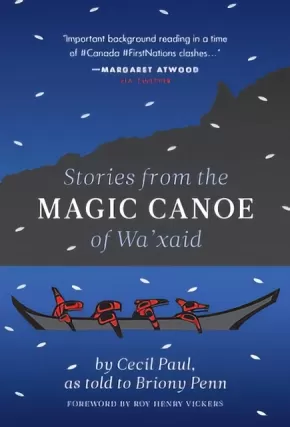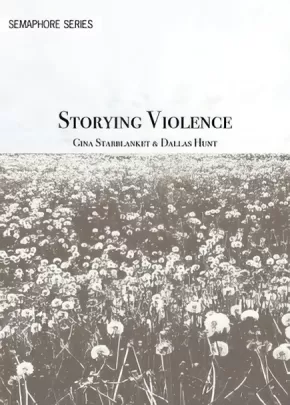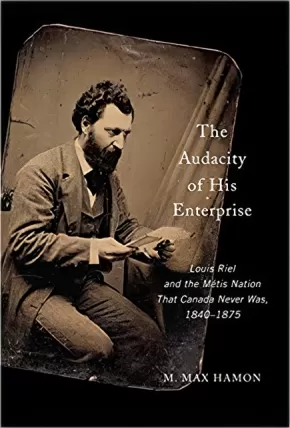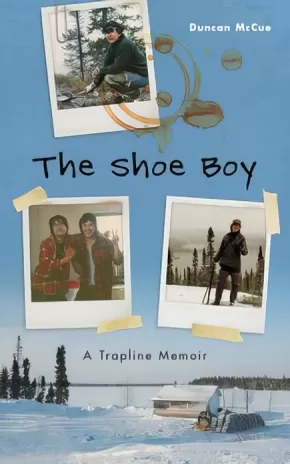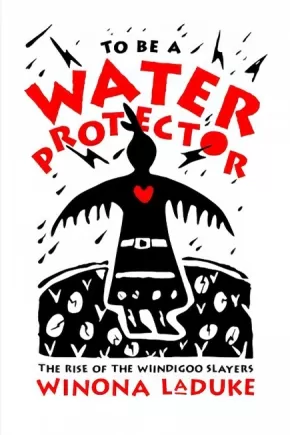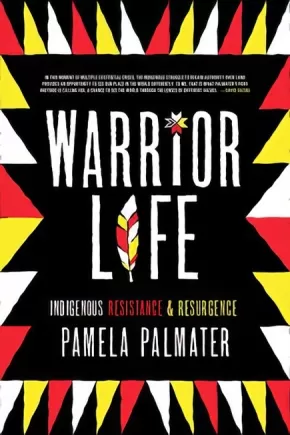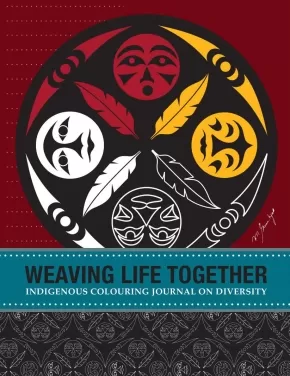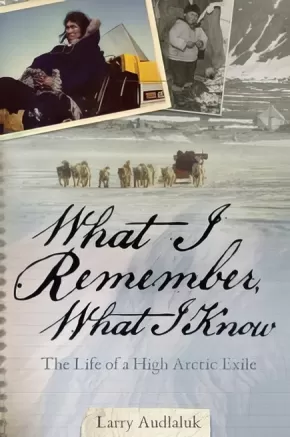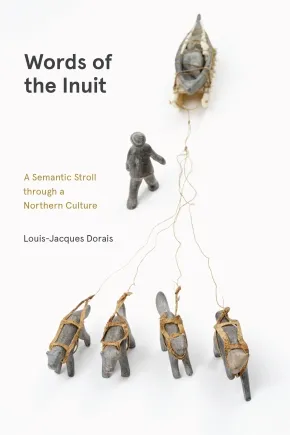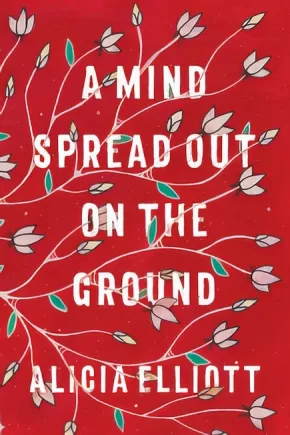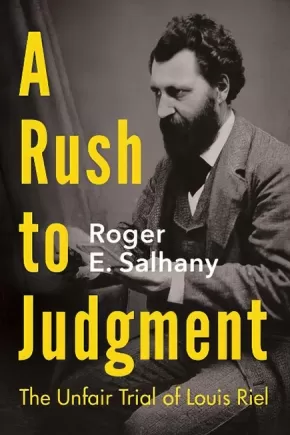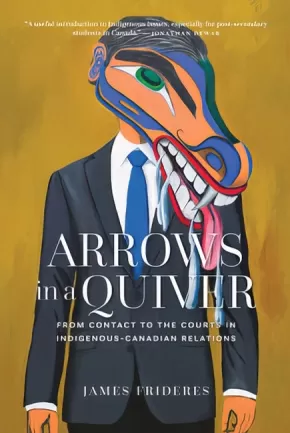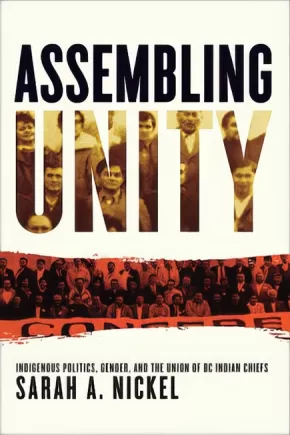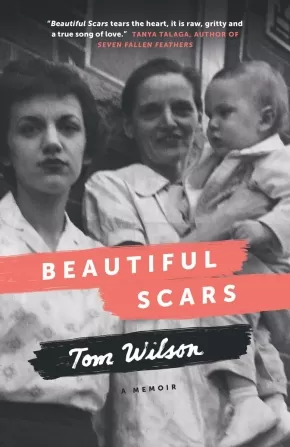
Indigenous Peoples in Canada
361
-
375
of
564 Results;
Sort By
Go To
of 38
Stories from the Magic Canoe of Wa'xaid (PB)
$25.00
Format:
Paperback
Text Content Territories:
Indigenous Canadian; First Nations; Haisla (Kitamaat); Xenaksiala (Henaksiala);
ISBN / Barcode: 9781771603379
Synopsis:
Synopsis:
A remarkable and profound collection of reflections by one of North America’s most important Indigenous leaders.
My name is Wa’xaid, given to me by my people. ‘Wa’ is ‘the river’, ‘Xaid’ is ‘good’ – good river. Sometimes the river is not good. I am a Xenaksiala, I am from the Killer Whale Clan. I would like to walk with you in Xenaksiala lands. Where I will take you is the place of my birth. They call it the Kitlope. It is called Xesdu’wäxw (Huschduwaschdu) for ‘blue, milky, glacial water’. Our destination is what I would like to talk about, and a boat – I call it my magic canoe. It is a magical canoe because there is room for everyone who wants to come into it to paddle together. The currents against it are very strong but I believe we can reach that destination and this is the reason for our survival. —Cecil Paul
Who better to tell the narrative of our times about the restoration of land and culture than Wa’xaid (the good river), or Cecil Paul, a Xenaksiala elder who pursued both in his ancestral home, the Kitlope — now the largest protected unlogged temperate rainforest left on the planet. Paul’s cultural teachings are more relevant today than ever in the face of environmental threats, climate change and social unrest, while his personal stories of loss from residential schools, industrialization and theft of cultural property (the world-renowned Gps’golox pole) put a human face to the survivors of this particular brand of genocide.
Told in Cecil Paul’s singular, vernacular voice, Stories from the Magic Canoe spans a lifetime of experience, suffering and survival. This beautifully produced volume is in Cecil’s own words, as told to Briony Penn and other friends, and has been meticulously transcribed. Along with Penn’s biography of Cecil Paul, Following the Good River, Stories from the Magic Canoe provides a valuable documented history of a generation that continues to deal with the impacts of brutal colonization and environmental change at the hands of politicians, industrialists and those who willingly ignore the power of ancestral lands and traditional knowledge.
Reviews
“The Magic Canoe brings peace to one’s soul. It is a warm wind moving our hearts. Wa’xaid takes us on a journey that regenerates and empowers us. T’ismista, the stone hunter, looks down on the Magic Canoe and reminds us to listen to storytellers like Cecil Paul. This is a story for the family of man; we are all in the canoe together and our stories need to be shared with each other.” – Roy Henry Vickers
Educator Information
Recommended in the Canadian Indigenous Books for Schools 2019-2020 resource list, as well as the 2020-2021 resource list, for grades 9 to 12 for English Language Arts, Social Studies, and Science.
Additional Information
224 pages | 5.00" x 7.00" | Paperback
Storying Violence: Unravelling Colonial Narratives in the Stanley Trial
$15.00
Format:
Paperback
Text Content Territories:
Indigenous Canadian; First Nations; Cree (Nehiyawak);
Reading Level: N/A
ISBN / Barcode: 9781927886373
Synopsis:
Synopsis:
In August of 2016, Cree youth Colten Boushie was shot dead by Saskatchewan farmer Gerald Stanley. Using colonial and socio-political narratives that underlie white rural settler life, the authors position the death of Boushie and trial of Stanley in relation to Indigenous histories and experiences in Saskatchewan. They point to the Stanley case as just one instance of Indigenous peoples' presence being seen as a threat to settler-colonial security, then used to sanction the exclusion, violent treatment, and death of Indigenous peoples and communities.
Additional Information
120 pages | 5.00" x 7.00"
The Audacity of His Enterprise: Louis Riel and the Metis Nation That Canada Never Was, 1840-1875
$45.95
Format:
Hardcover
Text Content Territories:
Indigenous Canadian; Métis;
ISBN / Barcode: 9780773559370
Synopsis:
Synopsis:
Louis Riel (1844-1885) was an iconic figure in Canadian history best known for his roles in the Red River Resistance of 1869 and the Northwest Resistance of 1885. A political leader of the Métis people of the Canadian Prairies, Riel is often portrayed as a rebel. Reconstructing his experiences in the Northwest, Quebec, and the worlds in between, Max Hamon revisits Riel's life through his own eyes, illuminating how he and the Métis were much more involved in state-making than historians have previously acknowledged. Questioning the drama of resistance, The Audacity of His Enterprise highlights Riel's part in the negotiations, petition claims, and legal battles that led to the formation of the state from the bottom up. Hamon examines Riel's early successes and his participation in the crafting of a new political environment in the Northwest and Canada. Arguing that Riel viewed the Métis as a distinct people, not caught between worlds, the book demonstrates Riel's attempts to integrate multiple perspectives - Indigenous, French-Canadian, American, and British - into a new political environment. Choosing to end the book in 1875, at the pinnacle of Riel's successful career as a political leader, rather than at his death in 1885, Hamon sets out to recover Riel's agency, intentions, and imagination, all of which have until now been displaced by colonial narratives and the shadow of his execution. Revisiting the Red River Resistance on its 150th anniversary, The Audacity of His Enterprise offers a new view of Riel's life and a rethinking of the history of colonialism.
Reviews
"The Audacity of His Enterprise is a sophisticated and humanizing biography of an iconic figure in Canadian history set within the context of his times." Jean Barman, University of British Columbia and author of Iroquois in the West
Additional Information
478 pages | 6.00" x 9.00" | 12 Photos
The Shoe Boy: A Trapline Memoir
$19.95
Format:
Paperback
Text Content Territories:
Indigenous Canadian; First Nations; Anishinaabeg; Cree (Nehiyawak); James Bay Cree;
ISBN / Barcode: 9780774880572
Synopsis:
Synopsis:
At the age of seventeen, an Anishinabe boy who was raised in the south joined a James Bay Cree family in a one-room hunting cabin in the isolated wilderness of northern Quebec. In the five months that followed, he learned a way of life on the land with which few are familiar, where the daily focus is on the necessities of life, and where both skill and finesse are required for self-sufficiency.
In The Shoe Boy, that boy – Duncan McCue – takes us on an evocative journey that explores the hopeful confusion of the teenage years, entwined with the challenges and culture shock of coming from a mixed-race family and moving to the unfamiliar North. As he reflects on his search for his own personal identity, he illustrates the relationship Indigenous peoples have with their lands, and the challenges urban Indigenous people face when they seek to reconnect to traditional lifestyles.
The result is a contemplative, honest, and unexpected coming-of-age memoir set in the context of the Cree struggle to protect their way of life, after massive hydro-electric projects forever altered the landscape they know as Eeyou Istchee.
This memoir will be of interest to readers of all ages who want to know more about the interplay of traditional and contemporary Indigenous lifestyles, the challenges of identity for First Nations youth, and the relationship Indigenous peoples have with their land.
Reviews
"Frank, funny and evocative, The Shoe Boy deftly entwines the challenges of identity for First Nations youth, the sexual frustration and hopeful confusion of the teenage years, and the realities of living in an enduring state of culture shock." — CBC Books
"The Shoe Boy is a valuable read and will enrich anyone who tunes in to CBC Radio One on Sunday afternoons, as McCue establishes his voice in the conversation of Canada.— Thomas Billingsley, Globe and Mail
Educator Information
Related Topics: Biography, Memoirs, and Letters; Canadian Studies; Indigenous Studies.
Recommended in the Canadian Indigenous Books for Schools 2020/2021 resource list for grades 9 to 12 for English Language Arts and Social Studies.
Caution: mature language, references to sex, alcohol, and suicide.
Additional Information
88 pages | 5.00" x 8.00"
To Be A Water Protector: The Rise of the Wiindigoo Slayers
$27.00
Format:
Paperback
Text Content Territories:
Indigenous American; Indigenous Canadian;
Grade Levels: University/College;
ISBN / Barcode: 9781773632674
Synopsis:
Synopsis:
Winona LaDuke is a leader in cultural-based sustainable development strategies, renewable energy, sustainable food systems and Indigenous rights. To Be a Water Protector explores issues that have been central to her activism for many years — sacred Mother Earth, our despoiling of Earth and the activism at Standing Rock and opposing Line 3.
For this book, Winona discusses several elements of a New Green Economy and the lessons we can take from activists outside the US and Canada. Also featured are her annual letters to Al Monaco, the CEO of Enbridge, in which she takes him to task for the company’s role in the climate crisis and presents him with an invoice for climate damages. In her unique way of storytelling, Winona LaDuke is inspiring, always a teacher and an utterly fearless activist, writer and speaker.
Reviews
"Since time immemorial, Indigenous Peoples have protected the earth’s precious water systems in recognition of our dependence on these living ecosystems. Water Protectors are earth warriors who put their bodies on the line in the face of powerful, violent and destructive extractive industries supported by Wiindigoo governors. Winona LaDuke is one of those Water Protectors who has made a compelling call to all peoples to rise up and protect the water and in so doing protect life itself on this planet." — Pamela Palmater, Author of Warrior Life
Additional Information
128 pages | 6.00" x 9.00"
Warrior Life: Indigenous Resistance and Resurgence
$25.00
Format:
Paperback
Text Content Territories:
Indigenous Canadian;
Grade Levels: University/College;
ISBN / Barcode: 9781773632902
Synopsis:
Synopsis:
In a moment where unlawful pipelines are built on Indigenous territories, the RCMP make illegal arrests of land defenders on unceded lands, and anti-Indigenous racism permeates on social media; the government lie that is reconciliation is exposed. Renowned lawyer, author, speaker and activist, Pamela Palmater returns to wade through media headlines and government propaganda and get to heart of key issues lost in the noise.
Warrior Life: Indigenous Resistance and Resurgence is the second collection of writings by Palmater. In keeping with her previous works, numerous op-eds, media commentaries, YouTube channel videos and podcasts, Palmater’s work is fiercely anti-colonial, anti-racist, and more crucial than ever before.
Palmater addresses a range of Indigenous issues — empty political promises, ongoing racism, sexualized genocide, government lawlessness, and the lie that is reconciliation — and makes the complex political and legal implications accessible to the public.
From one of the most important, inspiring and fearless voices in Indigenous rights, decolonization, Canadian politics, social justice, earth justice and beyond, Warrior Life is an unflinching critique of the colonial project that is Canada and a rallying cry for Indigenous peoples and allies alike to forge a path toward a decolonial future through resistance and resurgence.
Reviews
“In this moment of multiple existential crises from climate change to species extinction, ocean degradation, toxic pollution and so on, the Indigenous struggle to regain authority over land provides an opportunity to see our place in the world differently. To me, that is what Palmater’s fiery rhetoric is calling for, a chance to see the world through the lenses of different values.” — David Suzuki
“As governments try to pull the wool over the public eye by suggesting contemporary colonial acts are best for Indigenous peoples, Palmater helps us see the wrongdoing so we can become informed and be respectful change allies. Read this book to see the many faces of colonialism and to learn how truth, justice, and respect can defeat it.” — Cindy Blackstock, First Nations Child and Family Caring Society of Canada
Educator Information
Table of Contents
Foreword by Niigaanwewidam James Sinclair
Harper’s Gone, Now It’s Time to Look Within
The Worst Thing That Could Happen Is A First Nations Minister of Indian Affairs
Will We See Real Nation to Nation Respect With Trudeau?
Evidence of Good Faith Lacking in Trudeau’s Indigenous Agenda
Why Is Trudeau Government Opposing Charter Equality for Indigenous Women?
PM Trudeau’s Nation to Nation Relationship Disappeared with Empty Budget Promises
Trudeau’s Dance of Deception on Indigenous Rights
Trudeau’s Forked Tongue Reconciliation At UN
Indigenous Issues Disappear Slowly from Election 2019
Canada’s Ongoing Racial Discrimination Against Indigenous Women and Children Discussed at United Nations
Lethal Impact of Racism on Indigenous Health
Overincarceration Of Indigenous Peoples Nothing Short of Genocide
First Nations Water Crisis Problems A Crisis of Canada’s Own Making
Saskatchewan: The Land of The Living Skies and Lethal Racism
Justice for Our Stolen Children Camp
How Canada Turned A Blind Eye to The Suicide Crises In First Nations
Don’t Forget the Racist Canadians Behind the Racist Systems
The Ongoing Legacies of Canadian Genocide
Sexualized Genocide
Corporate Conquistadors Rape Indigenous Lands and Bodies
Bill S-3 Amendments to The Indian Act and the Never-Ending Battle for Equality for Indigenous Women
What You Need to Know About Sharon McIvor’s UN Victory on Indian Status
The People Left Behind by Trudeau’s Promised Nation to Nation Relationship (Co-Authored with Sharon McIvor)
Federal Budget 2019 Indigenous Women & Children Left Behind Again
Public Inquiry Needed to Address Sexualized Violence in Policing and Corrections
Why Canada Should Stand Trial for Tina Fontaine’s Murder
Justice System Still Not Protecting Indigenous Women and Girls
Missing and Murdered: Canada’s Genocide Cover-Up
Transitional Justice Plan Needed to End Genocide in Canada
Bill C-92’s Indigenous Child Welfare Act More Pan-Indigenous Legislation That Risks Continuing the Status Quo
Bill C-91 An Act Respecting Indigenous Languages: More Hollow Reconciliation
Canada’s Criminalization of The Indigenous Tobacco Trade
Cannabis Legalization Ignores First Nations
NAFTA 2.0 – Time to Get It Right or Kill It
Bill C-51, Anti-Terrorism Act, Testimony and Questions at Senate Committee on Public Safety and National Security
RCMP Invasion of Wet’suwet’en Nation Territory Breaches Canada’s Rule of Law
Killer Whales, Trans Mountain Pipeline and The Public Interest (Part 1)
It’s Up to Indigenous Environmental Groups to Protect the Public Interest (Part 2)
Clearing the lands has always been at the heart of Canada’s Indian Policy
The blockades no one talks about devastate Indigenous economies
The Liberals Plans for Indigenous Reconciliation are Just Beads and Trinkets
Abolishing the Indian Act Means Eliminating First Nations’ Rights
The Source of Our Power Has Always Been in Our Peoples – Not Voting in Federal Elections
Indigenous Rights are Not Conditional on Public Opinion
Reconciliation with Indigenous Peoples in Universities and Colleges
True Test of Reconciliation: Respect the Indigenous Right to Say No
The Indigenous Right to Say No
A Modern Treaty to Save Our Peoples and the Planet
Social Conflict Inevitable in Decolonization Battle
Indigenous Women Warriors are the Heart of Indigenous Resistance
Wet’suwet’en: a wake-up call for Canada
References
Index
Additional Information
272 pages | 6.00" x 9.00"
Weaving Life Together: Indigenous Colouring Journal on Diversity
$12.99
Artists:
Format:
Paperback
Text Content Territories:
Indigenous Canadian;
ISBN / Barcode: 9781554766253
Synopsis:
Synopsis:
Each page offers traditional and cultural insights into the natural and supernatural worlds. Thought-provoking questions are intended to deepen personal development and our relationships with others. The corresponding animal on the next page allows readers to take the time to further reflect and connect with their creativity as they colour in the animals.
Additional Information
32 Pages
What I Remember, What I Know
$25.95
Format:
Paperback
Text Content Territories:
Indigenous Canadian; Inuit;
ISBN / Barcode: 9781772272376
Synopsis:
Synopsis:
Larry Audlaluk has seen incredible changes in his lifetime. Born in northern Quebec, he relocated with his family to the High Arctic in the early 1950s. They were promised a land of plenty. They discovered an inhospitable polar desert.
Sharing memories both painful and joyous, Larry takes the reader on a journey to the Arctic as his family struggles to survive and new communities are formed. By turns heart-wrenching and humorous. Larry tells of his journey through relocation, illness, residential schooling, and the encroachment of southern culture.
Excerpt from What I Remember, What I Know
Many stories have been written about how Inuit families were relocated to the High Arctic. The one most written about is economic opportunity. The other is sovereignty. The writers are always careful to use the word "claims" when they're talking about sovereignty, as if to make our claims untrue. The story is long, complicated, and documented by various groups, besides the official records. It has been told from so many angles and moods, from social and political perspectives. I will tell you the story of my family's relocation from personal experience.
Additional Information
300 pages | 6.00" x 9.00"
Words of the Inuit: A Semantic Stroll through a Northern Culture
$31.95
Format:
Paperback
Text Content Territories:
Indigenous Canadian; Inuit;
Grade Levels: University/College;
ISBN / Barcode: 9780887558627
Synopsis:
Synopsis:
Words of the Inuit is an important compendium of Inuit culture illustrated through Inuit words. It brings the sum of the author’s decades of experience and engagement with Inuit and Inuktitut to bear on what he fashions as an amiable, leisurely stroll through words and meanings.
Inuit words are often more complex than English words and frequently contain small units of meaning that add up to convey a larger sensibility. Dorais’ lexical and semantic analyses and reconstructions are not overly technical, yet they reliably evince connections and underlying significations that allow for an in-depth reflection on the richness of Inuit linguistic and cultural heritage and identity. An appendix on the polysynthetic character of Inuit languages includes more detailed grammatical description of interest to more specialist readers.
Organized thematically, the book tours the histories and meanings of the words to illuminate numerous aspects of Inuit culture, including environment and the land; animals and subsistence activities; humans and spirits; family, kinship, and naming; the human body; and socializing with other people in the contemporary world. It concludes with a reflection on the usefulness for modern Inuit—especially youth and others looking to strengthen their cultural identity —to know about the underlying meanings embedded in their language and culture.
With recent reports alerting us to the declining use of the Inuit language in the North, Words of the Inuit is a timely contribution to understanding one of the world’s most resilient Indigenous languages.
Reviews
"Professor Dorais once again provides expert information and insight into the Inuit language and culture as only he can. This book is written so that academics, Inuit and the public can all learn more about the people who live in Canada’s most northern region. By examining the rich meanings contained within words of Inuktitut, Dorais details social nuances and core aspects of both traditional and modern Inuit culture.”— Alana Johns
Educator Information
Table of Contents
Introduction: Words from the Past, A Stroll Through Inuit Semantics
Ch. 1: Words for Speaking About the Environment and Land
Ch. 2: Words for Speaking About Animals and Subsistence Activities
Ch. 3: Words for Speaking About Humans and Animals
Ch. 4: Words for Speaking About Family, Kinship, and Naming
Ch. 5: Words for Speaking About the Human Body
Ch. 6: Words for Socializing in the Contemporary World
Conclusion: Words for the Future
Additional Information
344 pages | 6.00" x 9.00" | 2 maps, 2 figures, bibliography
A Mind Spread Out on the Ground
$21.00
Format:
Paperback
Text Content Territories:
Indigenous Canadian; First Nations; Haudenosaunee (Iroquois);
Grade Levels: 12; University/College;
ISBN / Barcode: 9780385692403
Synopsis:
Synopsis:
A bold and profound work by Haudenosaunee writer Alicia Elliott, A Mind Spread Out on the Ground is a personal and critical meditation on trauma, legacy, oppression and racism in North America.
In an urgent and visceral work that asks essential questions about the treatment of Native people in North America while drawing on intimate details of her own life and experience with intergenerational trauma, Alicia Elliott offers indispensable insight and understanding to the ongoing legacy of colonialism. What are the links between depression, colonialism and loss of language--both figurative and literal? How does white privilege operate in different contexts? How do we navigate the painful contours of mental illness in loved ones without turning them into their sickness? How does colonialism operate on the level of literary criticism?
A Mind Spread Out on the Ground is Alicia Elliott's attempt to answer these questions and more. In the process, she engages with such wide-ranging topics as race, parenthood, love, mental illness, poverty, sexual assault, gentrification, writing and representation. Elliott makes connections both large and small between the past and present, the personal and political--from overcoming a years-long history with head lice to the way Native writers are treated within the Canadian literary industry; her unplanned teenage pregnancy to the history of dark matter and how it relates to racism in the court system; her childhood diet of Kraft dinner to how systematic oppression is linked to depression in Native communities. With deep consideration and searing prose, Elliott extends far beyond her own experiences to provide a candid look at our past, an illuminating portrait of our present and a powerful tool for a better future.
Reviews
"This book is hard, vital medicine. It is a dance of survival and cultural resurgence. Above all, it is breathtakingly contemporary Indigenous philosophy, in which the street is also part of the land, and the very act of thinking is conditioned by struggles for justice and well-being." —Warren Cariou, author of Lake of the Prairies
"These essays are of fiercest intelligence and courageous revelation. Here, colonialism and poverty are not only social urgencies, but violence felt and fought in the raw of the everyday, in embodied life and intimate relations. This is a stunning, vital triumph of writing." —David Chariandy, author of Brother
"Wildly brave and wholly original, Alicia Elliot is the voice that rouses us from the mundane, speaks political poetry and brings us to the ceremony of everyday survival. Her words remind us to carry both our weapons and our medicines, to hold both our strength and our open, weeping hearts. A Mind Spread Out on the Ground is what happens when you come in a good way to offer prayer, and instead, end up telling the entire damn truth of it all." —Cherie Dimaline, author of The Marrow Thieves
"A Mind Spread Out on the Ground is a new lens on Indigenous Canadian literature." —Terese Marie Mailhot, author of Heart Berries
"We need to clone Alicia Elliott because the world needs more of this badass writer. A Mind Spread Out on the Ground showcases her peculiar alchemy, lighting the darkest corners of racism, classism, sexism with her laser-focused intellect and kind-hearted soul-searching. A fresh and revolutionary cultural critic alternately witty, vulnerable and piercing." —Eden Robinson, author of Son of a Trickster and Trickster Drift
"The future of CanLit is female, is Indigenous—is Alicia Elliott. I anticipate this book to be featured on every 'best of' and award list in 2019, and revered for years to come." —Vivek Shraya, author of I’m Afraid of Men and even this page is white
"In A Mind Spread Out on the Ground, Elliott invites readers into her unceded mind and heart, taking us on a beautiful, incisive and punk rock tour of Tuscarora brilliance. Elliott's voice is fire with warmth, light, rage and endless transformation." —Leanne Betasamosake Simpson, author of This Accident of Being Lost
"Alicia Elliott has gifted us with an Indigenous woman's coming of age story, told through engagingly thoughtful, painfully poignant and enraging essays on race, love and belonging. With poetic prose and searing honesty, she lays bare what it is like to grow up Indigenous and exist in a country proud of its tolerance, but one that has proven to be anything but. She opens eyes and captures hearts, leading you by the hand to see our fractured world through her eyes. Alicia is exactly the voice we need to hear now." —Tanya Talaga, author of Seven Fallen Feathers
"Incisive. That's the word I keep coming back to. A Mind Spread out on the Ground is incredibly incisive. Alicia Elliot slices through the sometimes complicated, often avoided issues affecting so many of us in this place now called Canada. She is at once political, personal, smart, funny, global and, best of all, divinely human. Necessary. That's the other word I keep thinking about. In every chapter, she manages to find the perfect word and the precise argument needed—I found myself saying 'yes, yes, that is exactly it' more than once. I am so grateful for her work." —Katherena Vermette, author of The Break
"A Mind Spread Out on the Ground is an astonishing book of insightful and affecting essays that will stay with you long after the final page." —Zoe Whittall, author of The Best Kind of People
Additional Information
240 pages | 5.75" x 8.50"
A Reconciliation without Recollection?: An Investigation of the Foundations of Aboriginal Law in Canada
$57.00
Format:
Paperback
Text Content Territories:
Indigenous Canadian;
ISBN / Barcode: 9781487521875
Synopsis:
Synopsis:
The current framework for reconciliation between Indigenous peoples and the Canadian state is based on the Supreme Court of Canada’s acceptance of the Crown’s assertion of sovereignty, legislative power, and underlying title. The basis of this assertion is a long-standing interpretation of Section 91(24) of Canada’s Constitution, which reads it as a plenary grant of power over Indigenous communities and their lands, leading the courts to simply bypass the question of the inherent right of self-government.
In A Reconciliation without Recollection, Joshua Ben David Nichols argues that if we are to find a meaningful path toward reconciliation, we will need to address the history of sovereignty without assuming its foundations. Exposing the limitations of the current model, Nichols carefully examines the lines of descent and association that underlie the legal conceptualization of the Aboriginal right to govern.
Blending legal analysis with insights drawn from political theory and philosophy, A Reconciliation without Recollection is an ambitious and timely intervention into one of the most pressing concerns in Canada.
Educator Information
This work would be useful for the following subjects or courses: History, Canadian History, Indigenous Studies, Indigenous Politics, Indigenous Law, Law and Society, Philosophy, Political Science.
Includes forwards by John Borrows (Professor and Canada Research Chair in Indigenous Law at the University of Victoria Law School) and James Tully (emeritus distinguished professor of Political Science, Law, Indigenous Governance, and Philosophy at the University of Victoria).
Table of Contents
Part 1 Reconciliation without Recollection
1.1 Reconciliation in Canadian Jurisprudence
1.2 Reconciliation as Picture Thinking
A) Historicism
B) The Ship of State
1.3 History, Law and Legitimacy
1.4 Problem of Reconciliation as Problem of Foundations
1.5 A Genealogy of the Indian Act
Part 2 A Genealogy of Reconciliation: Civilizing, Extinction and Culturalism as the Discursive Foundations of the Indian Act
2.1 Liberty and Legitimate Despotism: The Liberal-Imperialism of J. S. Mill
2.2 The Science of Savage Character: The Uncivilized and Mill’s Philosophy of History
A) Governing the Uncivilized: The Role of the Intermediate Body
B) Peace, Order and Good Government: Mill and the Indian Question
2.3 Reading the Right of History: Universal History and the Extinction Thesis
2.4 From Enfranchisement to Reconciliation: Culturalism and Indirect Rule
Part 3 A Despotism for Dealing with Barbarians: A Survey of the Foundations of Indian Policy in Canada
3.1 Pre-Confederation to the Indian Act of 1876
A) Imperial Federalism
B) Imperial Civilizing
C) Assimilation and Indirect Rule
D) Striation or Continuity?
3.2 The Indian Question and the Dominion
3.3 The Six Nations Status Case
A) The Six Nations of the Grand River
B) The League of Nations and the Mandate System
C) The Documents
3.4 A Building Crisis of Legitimacy
Part 4 A Law Without Measure for a Land Without Citizens: The Indian Act in Canadian Jurisprudence
4.1 The Authority of s. 91(24)
A) St. Catherine’s Milling, s. 91(24) and the Division of Powers
B) Interjurisdictional Immunity and s. 91(24)
C) The Theory of Enclaves
D) The Uncertain Measure of Indianness
E) Section 88 and Provincial Law
4.2 The Definition of Indians and the Authority of Bands
A) Legislative Origins
B) The Judicial Definition of Indians
C) The Judicial Definition of Bands
D) Custom Band Councils and the Question of Jurisdiction
4.3 Tsilhqot'in Nation and the Meaning of s. 91(24)
Part 5 An Era of Reconciliation, An Era of Indirect Rule: From the White Paper to the Full Box of Rights
5.1 The Hidden Player: Policy from Calder to the Indian Act, 1985
A) Line One: Legislative Renovation
B) Line Two: Land Claim Agreements
C) Line Three: Constitutional Change
D) The Penner Report
E) The Problem of Implementing the New Relationship
F) The Era of Indirect Rule and the Mechanism of Deferral
5.2 Reconciliation and Implementation
A) Unsettling the Ship of State
B) Recollection without Historicism
C) Implementing Reconciliation-with-Recollection
Bibliography
Additional Information
408 pages | 6.00" x 9.00"
A Rush to Judgment: The Unfair Trial of Louis Riel
$24.99
Format:
Paperback
Text Content Territories:
Indigenous Canadian; Métis;
ISBN / Barcode: 9781459746091
Synopsis:
Synopsis:
Did Louis Riel have a fair trial?
The trial and conviction of Louis Riel for treason in the summer of 1885 and his execution on November 16, 1885, have been the subject of historical comment and criticism for over one hundred years. A Rush to Judgment challenges the view held by some historians that Riel received a fair trial.
Roger E. Salhany argues that the judge allowed the prosecutors to control the proceedings, was biased in his charge to the jury, and failed to properly explain to the jury how they were to consider the evidence of legal insanity. He also argues that the government was anxious to ensure the execution of Riel, notwithstanding the recommendation of the jury for clemency, because of concerns that if Riel was sent to a mental hospital or prison, he would eventually be released and cause further trouble.
Additional Information
352 pages | 6.00" x 9.00" | 13 b&w illustrations, index, bibliography, notes.
Arrows in a Quiver: From Contact to the Courts in Indigenous-Canadian Relations
$39.95
Format:
Paperback
Text Content Territories:
Indigenous Canadian;
ISBN / Barcode: 9780889776784
Synopsis:
Synopsis:
Written in an accessible style and ideal for classroom use, Arrows in a Quiver provides an overview of Indigenous-settler relations, including how land is central to Indigenous identity and how the Canadian state marginalizes Indigenous people. Illustrating the various “arrows in a quiver” that Indigenous people use to fight back, such as grassroots organizing, political engagement, and the courts, Frideres situates “settler colonialism” historically and explains why decolonization requires a fundamental transformation of long-standing government policy for reconciliation to occur. The historical, political, and social context provided by this text offers greater understanding and theorizes what the effective devolution of government power might look like.
Reviews
“A useful introduction to Indigenous issues, especially for post-secondary students in Canada.” —Jonathan Dewar, co-editor of Cultivating Canada: Reconciliation through the Lens of Cultural Diversity
Educator Information
Recommended for students in grade 12 or college/university.
Additional Information
320 pages | 6.00" x 9.00"
Assembling Unity: Indigenous Politics, Gender, and the Union of BC Indian Chiefs
$32.95
Format:
Paperback
Text Content Territories:
Indigenous Canadian;
Grade Levels: University/College;
ISBN / Barcode: 9780774837996
Synopsis:
Synopsis:
Established narratives portray Indigenous unity as emerging solely in response to the political agenda of the settler state. But unity has long shaped the modern Indigenous political movement. With Indigenous perspectives in the foreground, Assembling Unity explores the relationship between global political ideologies and pan-Indigenous politics in British Columbia through a detailed history of the Union of BC Indian Chiefs. Sarah Nickel demonstrates that the articulation of unity was heavily negotiated between UBCIC members, grassroots constituents, and Indigenous women’s organizations. This incisive work unsettles dominant political narratives that cast Indigenous men as reactive and Indigenous women as apolitical.
This book will appeal to scholars and students of history, BC studies, and Indigenous studies, particularly those with an interest in gender and politics. It will also find an audience among Indigenous communities, activists, and political leaders.
Reviews
"Assembling Unity is a much needed resource that should be read by those wanting to learn about the historical issues BC Indigenous communities have faced – the same issues we continue to raise with current Canadian governments with little improvement." - Francyne Joe, President of the Native Women’s Association of Canada and member of the Shackan First Nation
Educator Information
Related Topics: BC Studies, Indigenous Studies, Canadian History, Gender & Sexuality Studies, History, Regional Studies, Women's Studies.
Table of Contents
Beginnings
Part 1: Pan-Indigenous Unity
1 Unity: “United we stand, divided we perish”
2 Authority: “Ordinary Indians” and “the private club”
3 Money: “A blessing and a golden noose”
Part 2: A Philosophical Revolution and Competing Nationalisms
4 Refusal: “Empty words and empty promises”
5 Protest: Direct Action through “Militant May”
6 Sovereignty: “If you really believe that you have the right, take it!”
Reflections
Appendix
Notes
Bibliography
Index
Additional Information
236 pages | 6.00" x 9.00" | 1 b&w photo, 2 maps, 3 tables
Beautiful Scars: Steeltown Secrets, Mohawk Skywalkers and the Road Home
$19.95
Format:
Paperback
Text Content Territories:
Indigenous Canadian; First Nations; Haudenosaunee (Iroquois); Kanyen'keha:ka (Mohawk);
Reading Level: N/A
ISBN / Barcode: 9780385685672
Synopsis:
Synopsis:
"I'm scared and scarred but I’ve survived"
Tom Wilson was raised in the rough-and-tumble world of Hamilton—Steeltown— in the company of World War II vets, factory workers, fall-guy wrestlers and the deeply guarded secrets kept by his parents, Bunny and George. For decades Tom carved out a life for himself in shadows. He built an international music career and became a father, he battled demons and addiction, and he waited, hoping for the lies to cease and the truth to emerge. It would. And when it did, it would sweep up the St. Lawrence River to the Mohawk reserves of Quebec, on to the heights of the Manhattan skyline.
With a rare gift for storytelling and an astonishing story to tell, Tom writes with unflinching honesty and extraordinary compassion about his search for the truth. It's a story about scars, about the ones that hurt us, and the ones that make us who we are.
Reviews
"Tom Wilson's memoir goes deeper than your average rock 'n' roll book." —Calgary Herald
Additional Information
240 pages | 5.20" x 8.02" | Paperback
Sort By
Go To
of 38

